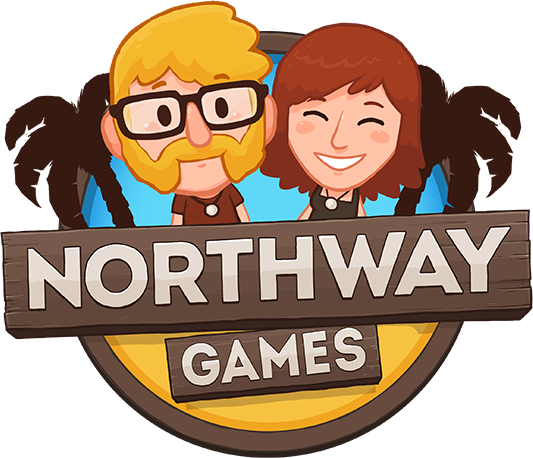 I’ve been trying to tease out the constituent parts of human problem solving for a little while now. This is the kind of topic you’d think you could just find a couple of books to read or fish out a couple of papers to get some insight. Unfortunately my searches aren’t bringing up as much as you might think. Although I will heavily recommend Jeff Hawkins’ On Intelligence. His book is still pretty theoretical but it has a lot of great ideas that have been slowly sinking into my thinking.
I’ve been trying to tease out the constituent parts of human problem solving for a little while now. This is the kind of topic you’d think you could just find a couple of books to read or fish out a couple of papers to get some insight. Unfortunately my searches aren’t bringing up as much as you might think. Although I will heavily recommend Jeff Hawkins’ On Intelligence. His book is still pretty theoretical but it has a lot of great ideas that have been slowly sinking into my thinking.
Nevertheless I have recently contrived a crude theory of human problem solving in my own head. I’ve come about these ideas from reading a few books, some introspection, the rope experiment I mentioned last time, and watching a ton of playtesting of puzzle games. It’s probably shallow, wrong, and not worth anything, but I’m going to subject it to you anyway.
I think there are two major components to our problem solving.
- Permutation
- Metaphor
The first one is easy. Permutation just means “trying everything”. I have believed permutation to be super important for a few years now. I don’t think the idea of just trying every possible action is going to shock anyone but from playtesting puzzle games I think you’d be surprised just how important permuting is to our problem solving. A lot of puzzles are solved by permutation alone. When you’re just “playing around with something” you are permuting. When you solved one of those “get the metal loop off the rope” puzzles and it just falls apart in your hands you are solving by permutation. When you are thinking out every possible outcome of a chess move you are permuting. Permutation is our go-to workhorse for getting things done. To do it all you need is two hands and a memory. It’s super versatile (you can apply it to pretty much any problem, regardless of how diverse) and it’s generally pretty effective, if laborious.
So permuting is an obvious part of problem solving but it’s clearly not the whole story. It doesn’t explain how people make leaps of intuition, and it doesn’t explain how people play games with very large solution spaces like Fantastic Contraption. In Fantastic Contraption permuting is very hard. You can put a stick or a wheel anywhere and connect them to anything. It would take you days to solve a problem by just trying every possible machine. Luckily, we have a wonderful gift for metaphor.
By a gift for metaphor I mean we have the ability to see similarities between seemingly disparate things. Consider this typical metaphor: “an angry man is like a simmering pot of water” (that’s a simile, which is a kind of metaphor). I argue that we are using the familiar pot of water to help understand the more rare angry man. We take some traits shared by the two objects: that they could both quickly convert to a state of painful unpredictability. At the same time we don’t get confused about other qualities of boiling water and anger that are not related. We don’t think of the man as being wet or becoming a gas, for example. This is second nature to us, but if you were to try to write a computer program to do this you’d quickly see how magical the talent is.
We can use this ability to see similarities between new problems and previous problems. Consider the rope problem from my previous post. A number of people wrote me saying they thought of the rope solution first. In fact I think more people come up with the swinging solution when the problem is posed as a thought experiment than when they have the ropes in front of them in person. I’m going to guess that this is because it’s harder to permute in our heads so we jump more quickly to our metaphor engine. Then we recognise the similarity of the rope problem to a tire swing, or a clock pendulum, and we’re off to the races. Metaphor also helps explain mastery of a game. As you improve in chess, for example, board states start to become analogous to eachother and so the outcome of previous games start to inform future games.
Permuting also helps us discover new metaphors. By playing with things we are always seeing them in a new light and there is an ever increasing chance that we will see a sudden similarity between the current problem and something we’ve seen before.
In this way Metaphor is your ability to take what you understand about one problem and apply it to a new problem. That is a super powerful talent that we all have. I believe it’s this ability, along with just trying random stuff, that makes our species so adaptable and so good at videogames.


Comments
26 responses to “Thinking… Metaphorically”
… [Trackback]
[…] Read More on on that Topic: northwaygames.com/448/ […]
… [Trackback]
[…] Info on that Topic: northwaygames.com/448/ […]
… [Trackback]
[…] Find More here to that Topic: northwaygames.com/448/ […]
… [Trackback]
[…] Find More on that Topic: northwaygames.com/448/ […]
… [Trackback]
[…] Here you will find 17658 more Info to that Topic: northwaygames.com/448/ […]
… [Trackback]
[…] Read More on to that Topic: northwaygames.com/448/ […]
… [Trackback]
[…] Read More here to that Topic: northwaygames.com/448/ […]
… [Trackback]
[…] Find More here to that Topic: northwaygames.com/448/ […]
… [Trackback]
[…] Read More here to that Topic: northwaygames.com/448/ […]
… [Trackback]
[…] Find More on that Topic: northwaygames.com/448/ […]
… [Trackback]
[…] Find More here to that Topic: northwaygames.com/448/ […]
… [Trackback]
[…] Find More Information here on that Topic: northwaygames.com/448/ […]
… [Trackback]
[…] Find More Info here to that Topic: northwaygames.com/448/ […]
… [Trackback]
[…] There you can find 20339 more Info on that Topic: northwaygames.com/448/ […]
… [Trackback]
[…] Find More on on that Topic: northwaygames.com/448/ […]
… [Trackback]
[…] Read More Information here to that Topic: northwaygames.com/448/ […]
… [Trackback]
[…] Read More Info here on that Topic: northwaygames.com/448/ […]
… [Trackback]
[…] Information on that Topic: northwaygames.com/448/ […]
… [Trackback]
[…] Here you can find 70178 additional Info to that Topic: northwaygames.com/448/ […]
… [Trackback]
[…] Find More Info here to that Topic: northwaygames.com/448/ […]
… [Trackback]
[…] Here you can find 19374 more Info on that Topic: northwaygames.com/448/ […]
… [Trackback]
[…] Read More on to that Topic: northwaygames.com/448/ […]
… [Trackback]
[…] Find More here on that Topic: northwaygames.com/448/ […]
… [Trackback]
[…] Find More to that Topic: northwaygames.com/448/ […]
… [Trackback]
[…] Find More on that Topic: northwaygames.com/448/ […]
… [Trackback]
[…] Find More to that Topic: northwaygames.com/448/ […]